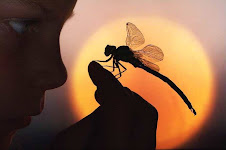“Key terms.”
1.-Science: Is a way of learning about the natural world, it is also the knowledge gained by exploring the natural world.
2.-Observing: Using one or more of your senses to gather information.
3.-Quantitative observations: Deal with a number or amount.
4.-Qualitative observations: Deal with descriptions that cannot be expressed in numbers.
5.-Infering: Is the action of explain or interpret the things you observe.
6.-Life Science: Is the study of the living things (Biology).
7.-Predicting: A forecast of what will happen in the future.
8.-Making models: Involves create representations of complex subjects.
9.-Technology: Technology is the thing that helps you make life easier.
10.-Engineer: Is the person who is trained to use both technological and scientific knowledge to solve practical problems.
11.-Organism: A living thing that can be multicellular or unicellular.
12.-Cell: All organisms are made of small building blocks called cells.
13.-Unicellular: singled called organisms, include bacteria.
14.-Multicellular: Organisms are composed of many cells that are specialized to do certain tasks.
15.-Response: Is the act that a cause the organism to react is called a stimulus.
16.-Development: the process of change that occurs during an organism´s life to produce a more complex organism.
17.-Spontaneus generation: The mistaken idea that living things can arise from nonliving sources.
18.-Autotroph: The organisms that make their own food
19.-Heterotroph: The organisms that cannot make their own food
20.-Homeostasis: the maintenance of stable internal conditions in ann organisms.
21.-Scientific inquiry: Is to consider the diverse ways in which scientists study the natural world and propose explanations based on evidence they gather.
22.-Hyphotesis: Is a possible explanation for a set of observations or answer to a scientific question.
23.-Variable: An amount of things.
24.-Controlled experiment: An experiment in which only one variable is manipulated at time.
25.-Manipulated experiment: One variable that is purposely changed to test a hypothesis.
26.-Responding variable: is the factor in response to the manipulated variable.
27.-Operational definition: a statement that describes how to measure a particular variable or how to define a particular term.
28.-Data: Is the facts, figure, and other evidence to get through observations.
29.-Communicating: the process of sharing ideas with others through writing and speaking.
30.-Classification: Is the process of grouping things based on their similarities.
31.-Taxonomy: Is the study of how living things are classified.
32.-Binomial nomenclature: A system of naming organisms.
33.-Genus: Is a classification grouping that contains similar closely related organisms.
34.-Species: Is a group of organisms that are physicall similar and can mate with each other and produce offspring that can also mate and reproduce.
35.-Prokavyote: bacteria and Achaea.
36.-Nucleus: Nucleus is a dense area in a cell that contains nucleic acids.
37.-Eukaryote: An organism whose cells contain nuclei.
“Key concepts.”
1.-What skills do scientists use to learn about the natural world?
R= Observe, Infer, Predict, Classify, Make models.
2.-What is scientific inquiry?
R=is consider the diverse ways in which scientist study the natural world and propose explanations based on evidence they gather.
3.-What make a hypothesis testable?
R=this means that research must be able to carry out investigations and gather evidences that will either support or disapprove the hypothesis.
4.-What attitudes are important in science?
R=curiosity, honesty, open-mindedness and skepticism, creativity…
5.-What is the goal of technology?
R= Make life easier.
6.- Why is preparation important when carrying out scientific investigations in the lab and in the field?
R=to be safe during the investigation.
7.- What you should do if an ancient occurs?
R= when any accident occurs, no matter how minor, notify your teacher immediately.
8.-What characteristics do all living things share?
R= Cellular organization, response and chemicals.
BY MICHELLE SAGNELLY D´URZO
M12

No hay comentarios:
Publicar un comentario